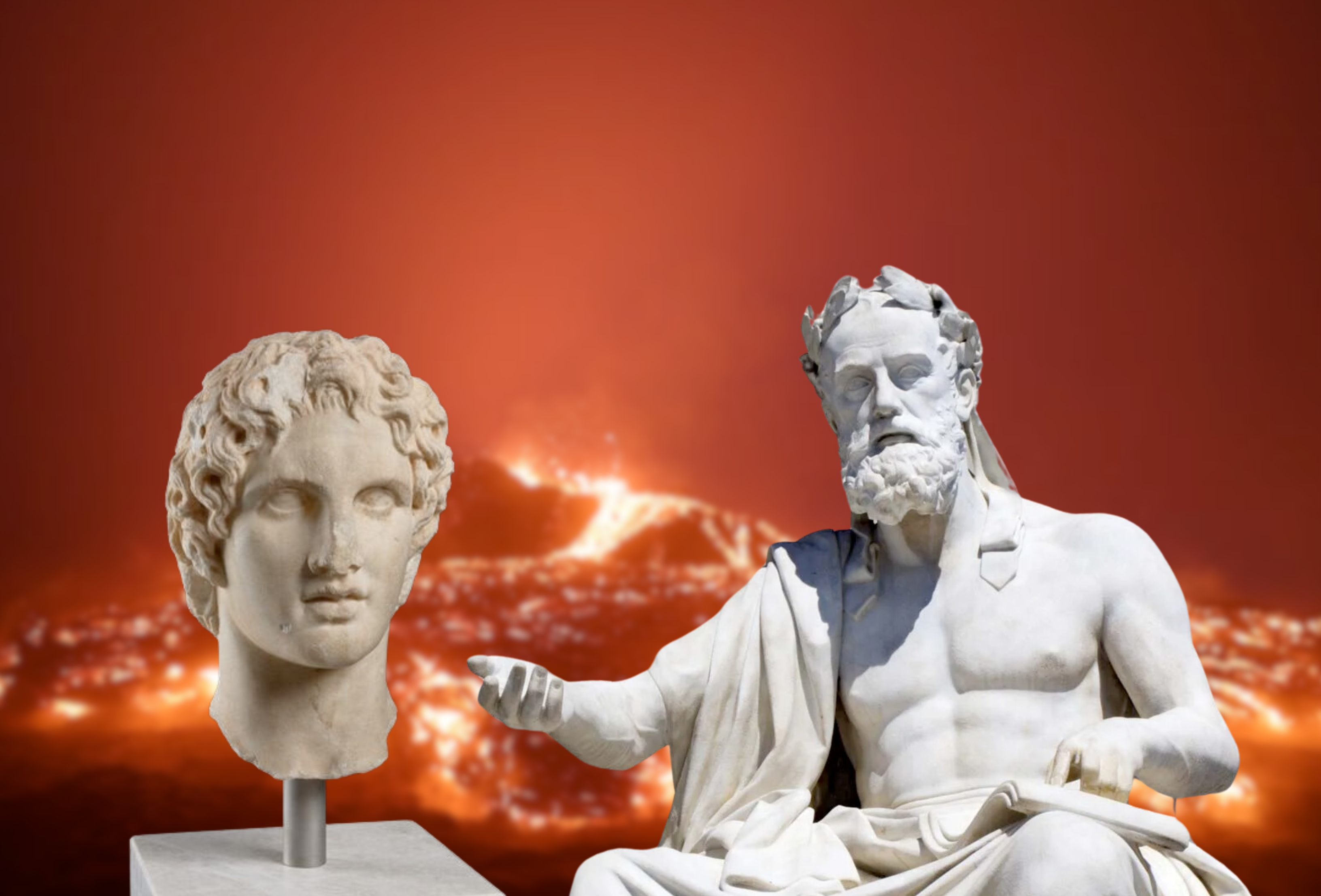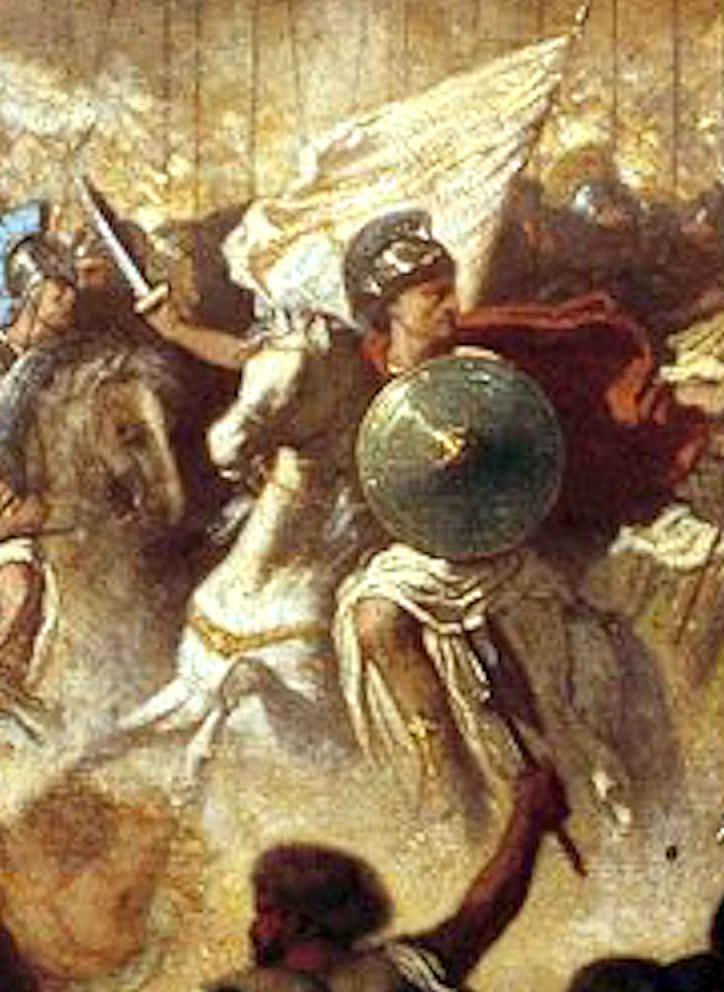crisis
10 Lessons That Inspired Alexander The Great, Part 3
March 2024

crisis
10 Lessons That Inspired Alexander The Great, Part 3
March 2024
Alexander The Great set into motion the events that would create the modern world. He studied and was inspired by Xenophon, a student-of-Socrates turned mercenary. Xenophon’s lessons on crisis leadership are timeless. In this series, we recount his epic, true story of war in the Anabasis and update this ancient wisdom to support you and your business the next time crisis hits.
STORY RECAP: Cyrus the Younger hires Greek mercenaries, The Ten Thousand, to kill his brother Artaxerxes II and seize the throne of the Persian Empire. Cyrus lies to The Ten Thousand about the purpose of their mission, excusing it as a law-keeping exercise against barbarians. When The Ten Thousand grow suspicious of the mission, they rebel. Their general Clearchus convinces them to trust Cyrus and continue with the mission.
--
Conflict is common in organization.
Some conflict is part of a constructive, creative process. Wrestling with how to get the best idea.
But some conflict is destructive. Particularly when the interest is not for the betterment of the whole but for the advantage of the few.
In organizations, conflict “hot spots” can erupt between people but also between entire functions. Sales is at war with Marketing; Facilities is at war with Manufacturing.
Conflict thrives on emotion.
Conflict begs of leaders to lose their cool.
Conflict thrives on structural issues. On resource scarcity. On differences in style and motivation.
How quickly something small can become enormous…
--
Of the Greek generals, three of them were Clearchus, Menon, and Proxenus.
On the march to Babylon two men – one under Clearchus and one under Menon started arguing. The dispute was trivial.
Clearchus stepped in, sided with his own soldiers, declared Menon’s soldier delinquent, and had him flogged.
When Menon’s soldiers found out, they went into a rage.
Later that day, Clearchus was riding his horse to inspect a local marketplace. On his way back he rode through Menon’s camp.
One of Menon’s soldiers charged him with an ax and took a swing!
Clearchus evaded the blow but soon Menon’s soldiers started to stone him. (The second time by our count that Clearchus has been stoned!)
Clearchus managed to escape and galloped to his own soldiers. In a frenetic panic, he ordered them to arms. As soon as his troops were armed, he started marching them against Menon’s soldiers.

Menon, uninvolved until this point, looks at the horizon and sees Clearchus marching upon him. Menon “panic-stricken” orders his men to “seize their arms” while “others stood riveted to the spot, in perplexity at the occurrence”.
Seeing the ensuing battle unfolding, Proxenus and his troops rush into the middle, intent on stopping the fight. Proxenus begs and pleads with Clearchus to put down his arms. But Clearchus does not listen.
At this moment Cyrus appears with his royal guard and order an end to the conflict:
“You Greeks yonder, you know not what you do. As surely as you come to blows with one another, our fate is sealed—this very day I shall be cut to pieces, and so will you.”
Cyrus reminds the Greeks of their common enemy. They are so deep into the Persian Empire that to fight now would mean certain death. For good measure, Cyrus also makes lavish promises of wealth to entice a Greek peace:
“On the whole my fear is, not that I may not have enough to give to each of my friends, but lest I may not have friends enough on whom to bestow what I have to give, and to each of you Greeks I will give a crown of gold.”
With this, Clearchus and the Greeks begrudgingly put their differences behind them and continued the march.
--
What started as a small, trivial dispute almost killed the entire Greek army.
At each turn, Clearchus made choices to escalate the conflict rather than de-escalate.
Rather than let the soldiers negotiate their own differences…
Rather than step in to mediate a solution…
Clearchus jumped to be judge, jury, executioner.
AND he did this to someone outside of his organizational structure. In condemning Menon’s man, he overstepped his own authority. What’s worse is that at no point did Clearchus go to Menon to get support.
We see this happening frequently in corporations. A leader will step out of their functional role, out of their place in the system to coach, advise, control someone on a different team. This is an act of disrespect and creates conflict!
Clearchus also made emotional, impulsive decisions. He lost sight of the “benefit of the whole” and instead made it all about himself. This emotional, selfish act almost destroyed the entire army.
And while Cyrus did gain a truce, he did nothing to resolve the underlying conflicts amongst the Greeks. He spoke to the carrot (more money) and the stick (common enemy killing them). But these types of solutions are short-term. Conflict is prone to erupt again.
Leaders who want to truly end conflict need to get to the underlying motivations and desires. In this case, Menon may have a need for respect from his peer. Clearchus may have a need to feel safe. When we can engage in that dialogue, then conflict will truly be resolved.
Otherwise, it’s just a cold war waiting to erupt once more.

